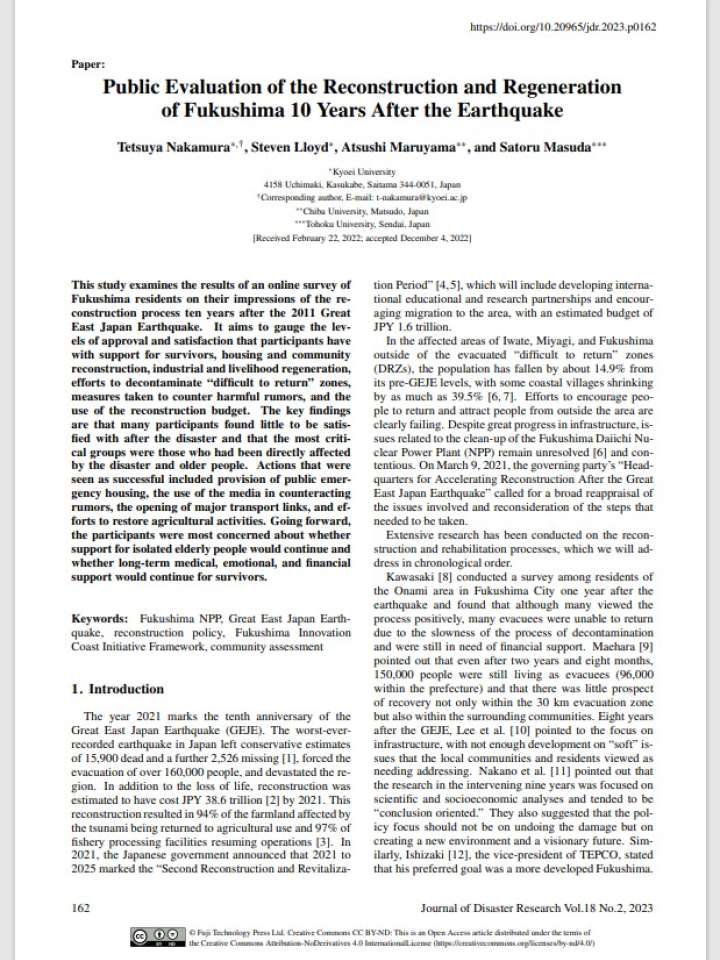Public Evaluation of the Reconstruction and Regeneration of Fukushima 10 Years After the Earthquake
This study examines the results of an online survey of Fukushima residents on their impressions of the reconstruction process ten years after the 2011 Great East Japan Earthquake. It aims to gauge the levels of approval and satisfaction that participants have with support for survivors, housing and community reconstruction, industrial and livelihood regeneration, efforts to decontaminate “difficult to return” zones, measures taken to counter harmful rumors, and the use of the reconstruction budget. The key findings are that many participants found little to be satisfied with after the disaster and that the most critical groups were those who had been directly affected by the disaster and older people. Actions that were seen as successful included provision of public emergency housing, the use of the media in counteracting rumors, the opening of major transport links, and efforts to restore agricultural activities. Going forward, the participants were most concerned about whether support for isolated elderly people would continue and whether long-term medical, emotional, and financial support would continue for survivors.
Explore further

